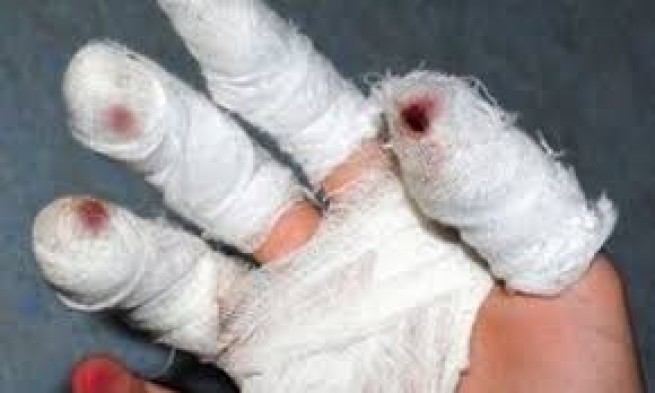New opportunities will be open to small and medium-sized businesses and freelancers who are looking for funding but cannot access bank loans. This is a micro-credit scheme and it applies to both existing and new businesses.
The opening of this specific market in Greece has taken longer than in other European countries, also due to the pandemic. Nevertheless, the microcredit market is making slow but significant moves.
Funding Gap
According to a study by the European Commission for the period 2021-2027, the financing gap for the microcredit market in Greece is at least 578.1 million euros per year and could even reach 750 million euros.
Simply put, these are the financing needs of small and micro enterprises and freelancers in Greece, who in many cases cannot cross the threshold of traditional banks today and can turn to microfinance companies.
Amount of loans
Microcredit only concerns loans up to a few thousand euros (less than 25,000 euros, while the average loan size is EU between EUR 10,000 and EUR 15,000) to meet short-term business/professional needs – amounts that are significantly less than traditional commercial banks. In addition, these loans do not require the usual guarantees that are a must for banks. This process is combined with the provision of business development services, within which the beneficiary can receive advice on diagnosing their business needs, assistance in optimizing the business plan.
Companies providing microcredit
To date, the CBE has issued three microfinance licenses, opening the microfinance market in Greece with amounts up to 25,000 euros. These are the following companies:
- TMEDE Microfinance Solutions” (owned by TMEDE and licensed in January 2022).
- “MicroSmart” (obtained a license in March 2023)
- “AFI Microfinance SA” (Owned by non-profit Action Finance Initiative and licensed in May 2023)
Solutions
- Working capital up to 25,000 € for up to 5 years.
- Interest rate from 9%.
- Zero commission per envelope.
- Grace period up to 6 months, depending on the specific case.
- Repayment options depending on the client:
- Monthly payments for loans with a floating rate linked to the quarterly Euribor.
- Monthly interest payments on the outstanding loan amount plus principal repayment linked (on an interest basis) to the previous month’s turnover
- Monthly payment of interest on the outstanding loan amount with repayment of the principal amount of the loan no later than 24 months later.
Existing companies are also entering the market with specialized products related to restocking finance, marketing and sales, and farmers-oriented seed purchases.
Institutional Framework
Law. 4701/20 on microcredit, among other things, provides for:
- Commitment to transparency of loan conditions regarding the interest rate, total cost, number and amount of payments, repayment period, content and cost of consulting services, right to terminate the contract, the procedure for collecting outstanding debts and the procedure for out-of-court dispute resolution.
- The repayment period of the provided microfinance loan can be from 12 months to 10 years.
- Collateral not allowed
- In addition to providing microfinance, institutions are also required to provide beneficiaries with consulting services on business management training, support in solving legal, tax and administrative problems, and provide advice.

Beware micro loans
The ability to quickly borrow a small amount of money is hardly surprising now, but for Greece this is a relatively new type of activity, therefore, based on the experience of other countries, we want to talk about the dangers of microcredit. Despite all the advantages and convenience of microcredit, they have several pitfalls that can seriously ruin the lives of borrowers.
For any financial organization, issuing money without collateral is always a big risk; in order to secure their business, lenders set high interest rates to cover losses if the client does not repay the debt. As a rule, it is almost impossible for clients who do not have official employment and a stable income to get loans from a regular bank. That is why, when applying for short-term loans, you have to overpay interest. Typically, the daily interest rate on such loans reaches 1% per day of the amount borrowed, so the overpayment is 6-8 times more than was once borrowed.
What is the danger of microloans?
- The first is the high interest rate. Banks set an annual interest rate for a loan, while microfinance organizations charge interest daily. However, as a rule, clients pay attention only to the size of the interest rate, not paying attention to the fact that these interests are accrued every day. Basically, this is 0.5-1% per day, it would seem a trifle, especially in comparison with banking 8-18%, but considering that this is per day, and not per year, it turns out that the average annual percentage in a microfinance organization is approaching to 300%.
- Second, the amount of the penalty for late payment. You can get into a real debt hole. For various reasons, you may not be able to return the money in a timely manner, and then you immediately get a fine. The debt of a microfinance organization will grow like a snowball, and it can be very difficult, and sometimes impossible, to get out of this situation. And here the third problem arises – the work of collectors. Unknown people call the borrower, make threats, calls can come at any time of the day. In addition, not only you can call, but also your colleagues, relatives and even children! It is not a problem for a collector to find a person and his number. The fourth is that not all microfinance organizations are officially registered. Because of this, you can get to scammers, as a result, people lose their property and even housing. Summing up all this, we can conclude that it is dangerous to take money from microfinance organizations, there is a high probability of losing your money, property and housing. Very many, having turned to microfinance organizations for help, will soon regret it.







More Stories
The Greek Tax Administration sent out "letters" 20,000 taxpayers who "forgot" declare income
Tax returns 2024: which income is exempt or subject to special tax
Tax returns: platform open for legal entities